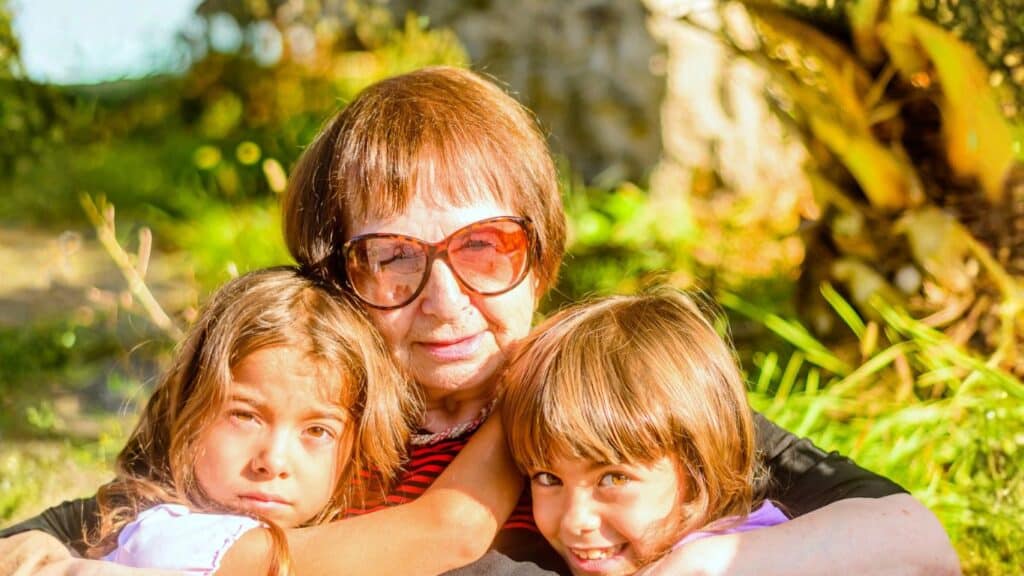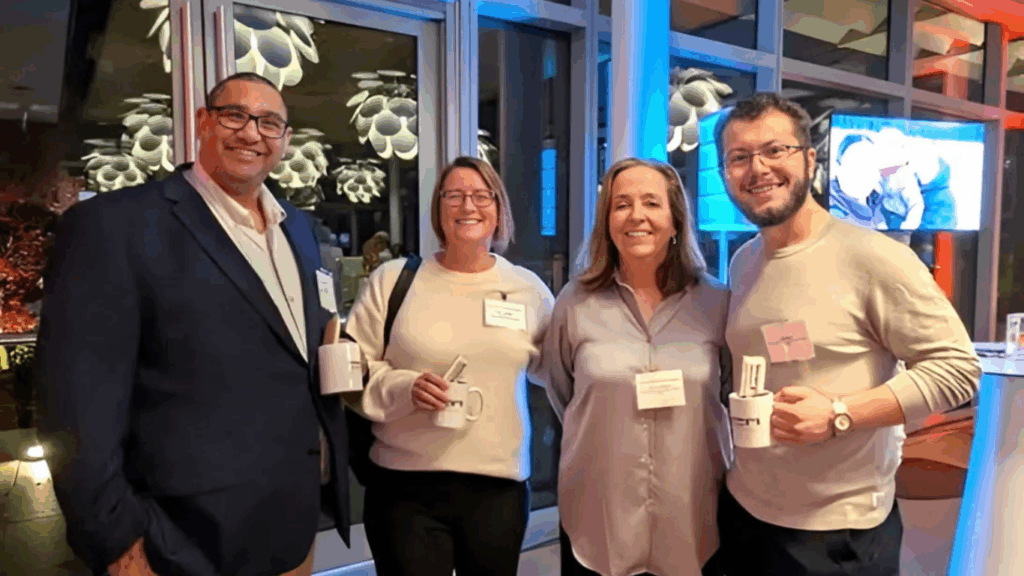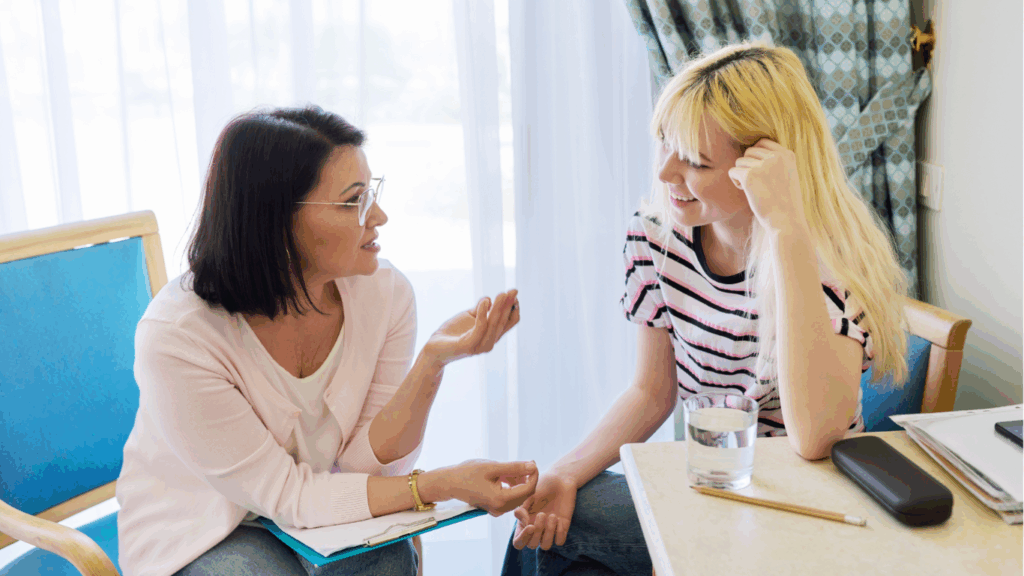Five years ago, Sophie Perkins* was an empty nester in her fifties with a busy career. She had no idea that she was soon to become a full-time kinship caregiver.
Though Sophie knew that her daughter-in-law and son weren’t parenting their children adequately, as she lived some distance from the family, she didn’t have a full grasp of the situation. Her son and daughter-in-law made great efforts to appear as though they lived relatively “normal” lives.
By the time the girls were three and seven years old, Sophie realized that she had to find out why their development was so obviously delayed. The more she learned, the more terrified she became. Sophie discovered that both parents were drug addicted and that the children had been malnourished and neglected. They had also been sexually abused by a convicted pedophile they had been left with. Things couldn’t have been worse.
Sophie says that several people had complained to the Ministry of Children and Family Development (MCFD) over a prolonged period of time before action was taken. Eventually, it was the children’s father who insisted that they be removed from the home.
Finally, the children were apprehended and placed in Sophie’s care. Though initially she thought this would be temporary, she soon realized this was not to be the case.
When the girls came to live with Sophie, Amanda, the three-year-old, had rotten teeth, lice, and scabies. She asked for beer rather than milk, and she went into frequent violent rages where she would bite, kick, and scream at Sophie. She was self-destructive and would repeatedly hit her head on a concrete floor. Her world had been restricted to sitting in front of a television, receiving very little stimulation or food, and hardly ever venturing outdoors.
Diana, the seven-year-old, had rickets, she couldn’t read and was far behind her peers in general. The girls also acted out sexually with each other. Despite being removed from a terrible situation, they were traumatized by losing their birth parents, and wanted to go back to them.
These first years are obviously very hard for Sophie to talk about. She went from living a comfortable life to being a single parent with two high special needs kids. She felt battered and exhausted as her previous life began to fall apart. She feels she received little support, other than increased access to counselling, through MCFD. Sophie says there was no continuity with social workers; she frequently dealt with new staff who, she feels, had little insight into her situation. One social worker actually suggested that Sophie have her daughter-in-law live with her so that Sophie could teach her “parenting skills.”
As a “restricted foster parent,” Sophie received some financial support from MCFD but not what a foster parent caring for children with her granddaughters’ level of needs would normally receive. She struggled with the financial burden of the kids’ dental work and babysitting costs. MCFD would pay for very limited respite care, but, at just $23.87 per day, it was almost impossible to find the highly-experienced, trained caregivers that the children needed. Sophie had to rely on the kindness of friends. Sophie says that she struggled just to meet the girls’ basic needs, never being able to take them to a movie or out for a pizza. She says her friends and a very supportive employer were the only thing that got her through those first years.
Initially, Sophie didn’t want the kids to be labelled, and didn’t pursue testing for FASD; although, for Diana the signs were obviously there. Eventually, encouraged by a teacher, Sophie had Diana assessed at Sunny Hill Hospital in Vancouver, a step she is now glad she took. Five years on, Diana is 12 years old and has an individualized education plan, which allows her to achieve some success at school. Having determined the diagnosis and learned more about FASD, Sophie now has greater insight into how to parent Diana, including making her life highly structured. As a result, Diana is achieving many successes. She has a paper route, she does Hip-Hop dance, and she has made friends in her Bible study group. She still has many challenges, but doctors, teachers and counsellors are hugely impressed with how well she is doing.
Almost every aspect of the girls’ lives is touched by the abuse and neglect they suffered — both have huge issues with food, including hoarding and overeating. Amanda and Diana have both been diagnosed with Post-Traumatic Stress Disorder and Attachment Disorder. They receive ongoing counselling.
Sophie says that though many professionals involved with the children were extremely negative about their futures, anticipating that they would never be able to overcome the early trauma in their lives, after much work and time, they are both starting to heal. Diana has finally started to talk about the abuse and asked if she could go to the police and tell them what happened to her. Sophie feels this took incredible courage and strength of character.
Sophie still wishes she had more support in parenting the girls. Diana is a pre-teen, and Sophie is anticipating there will be new challenges ahead. Sophie worries that Diana is extremely vulnerable and could easily take risks as she becomes more independent.
Because of Sophie, these girls will know that someone cared enough to sacrifice everything for them. They are also growing up in a safe and nurturing environment — something all children need and deserve.
The adoption of the children is now another huge and meaningful step that Sophie and the girls are now taking together.
More and more grandparents are parenting their grandchildren and the trend is likely to continue. Women like Sophie need to be acknowledged for what they are doing, both for their grandchildren and for society as a whole. They should also be properly supported — financially and emotionally. Taking care of grandchildren should not come at such a huge personal and financial cost.
*Names have been changed.





